Society & Outreach
Dissemination
Dissemination is vital as it connects our research center with society, ensuring that our valuable knowledge reaches a wide audience. By sharing our findings, we inspire curiosity and inform decision-making, driving positive societal change. The main events where we participate are European Researchers Night, Open Labs @Técnico, Open Days @Técnico and Open Days @Ciências. Also, we created MeetMe-SciPro to introduce our members, their scientific work, and beyond.
What to find more?
How to convert carbon dioxide into products with industrial interest?
How can we improve the performance of organic solar cells used in solar panels?
What if energy storage devices could autonomoulsy recover energy?
What is the relevance of VOCs in extreme behaviors in forest fires?
How can I transform gold into a sustainable rainbow?
Do you know what are eutectic solvents, and why they are green and sustainable solvents?
MeetMe-SciPro

Vânia André
Auxiliary Researcher
Research Group: Inorganic & Bioinorganic Chemistry
Place: CQE@IST
21 Jun 2025
What is your research?
Why is it unique?
What are the biggest challenges?
Life beyond science...
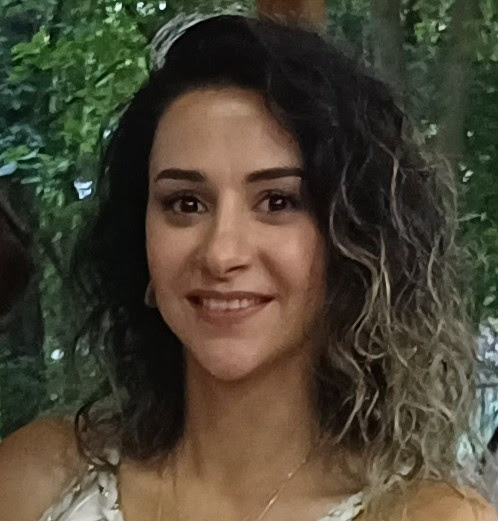
Vusala Aliyeva
Student
Research Group: Inorganic and Bioinorganic Chemistry
Place: CQE@IST
29 May 2025
What is your research?
I work in the field of unconventional noncovalent interactions (halogen, chalcogen, pnictogen, tetrel and triel bonds). The exploration of new synthetic concepts and strategies to drive chemical reactions is of vital importance for the sustainable development of organocatalytic and metal-mediated transformations. Recently, noncovalent synthesis has emerged as a new concept for organic chemistry, crystal engineering, molecular recognition, and has been demonstrated to be an important synthetic tool capable of addressing elusive selectivity and reactivity issues. In fact, enzymes achieve a high catalytic performance through weak interactions in biochemical processes in Nature. Inspired by the biosynthesis and biodegradation reactions, the decoration of the primary or secondary coordination sphere of metal complexes are the recognized approaches in synthetic chemistry.
Why is it unique?
In contrast to other synthetic strategies (designed directing groups, single-atom catalysis, etc.) the use of weak interactions can avoid a multi-step synthesis, i.e., attachment of directing group(s) into the substrate molecules and detachment after the functionalization, an expensive and time-consuming synthetic procedure.
What are the biggest challenges?
To development new synthetic methods and materials.
Life beyond science...
I get pleasure spending time with my family, listening to music, and cooking.
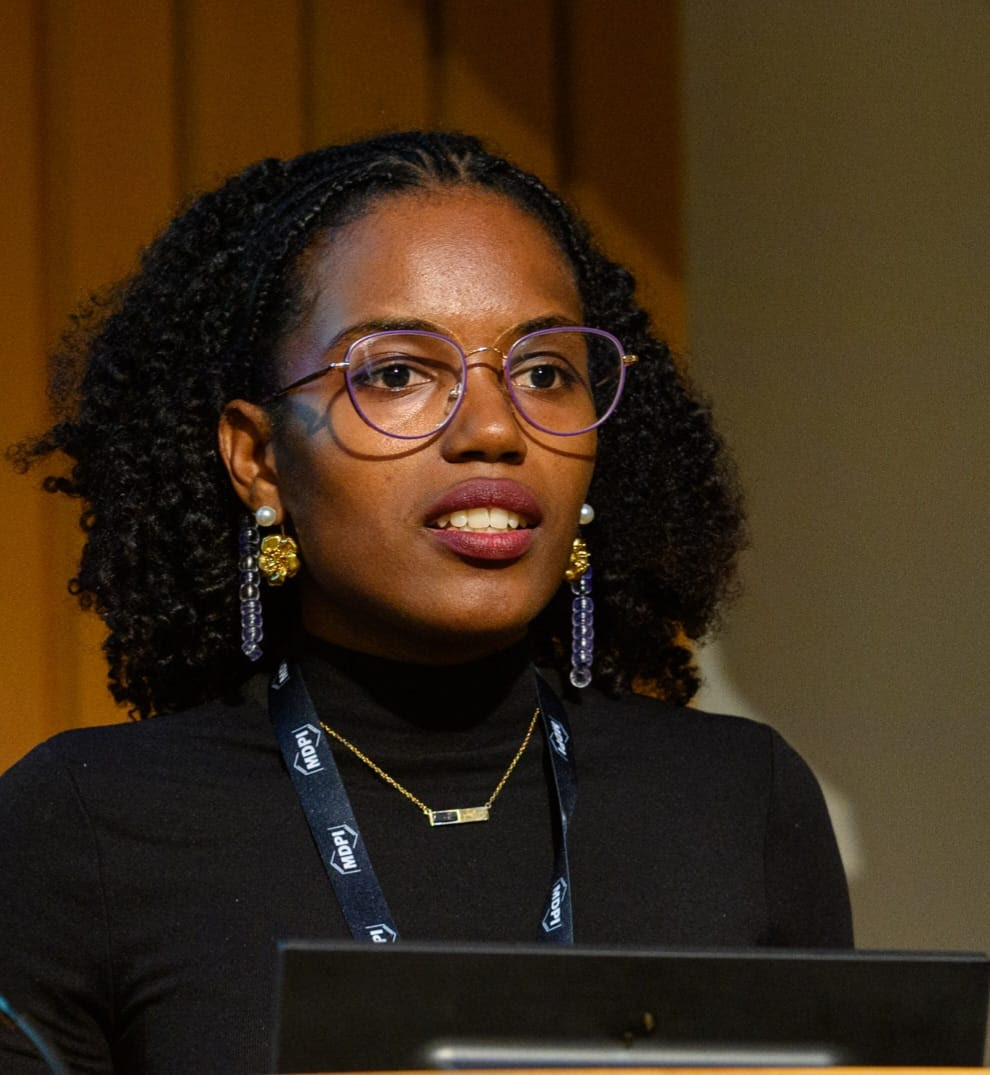
Tânia Moreira
Student
Research Group: (Bio)Organic Chemistry & Biochemistry
Place: CQE@FCUL
29 May 2025
What is your research?
The topic of my research is the sustainable synthesis of novel potentially bioactive nucleoside analogs.
Why is it unique?
It is a unique work since we can synthesize complex nucleosides using innovative and green methods. The synthesized molecules can potentially interact with biological targets responsible for many life treating diseases.
What are the biggest challenges?
The biggest challenges consist in using green methods for the synthesis of carbohydrates, since carbohydrates and green chemistry are not very compatible. However, step by step we will continue to try and overcome every drawback along the way.
Life beyond science...
Science is a very big part of my every day; however, I always give space to family and friends. Beyond that I think traveling, reading, and music are a must for mental health, and as a form of coping with the drawbacks of investigation life.
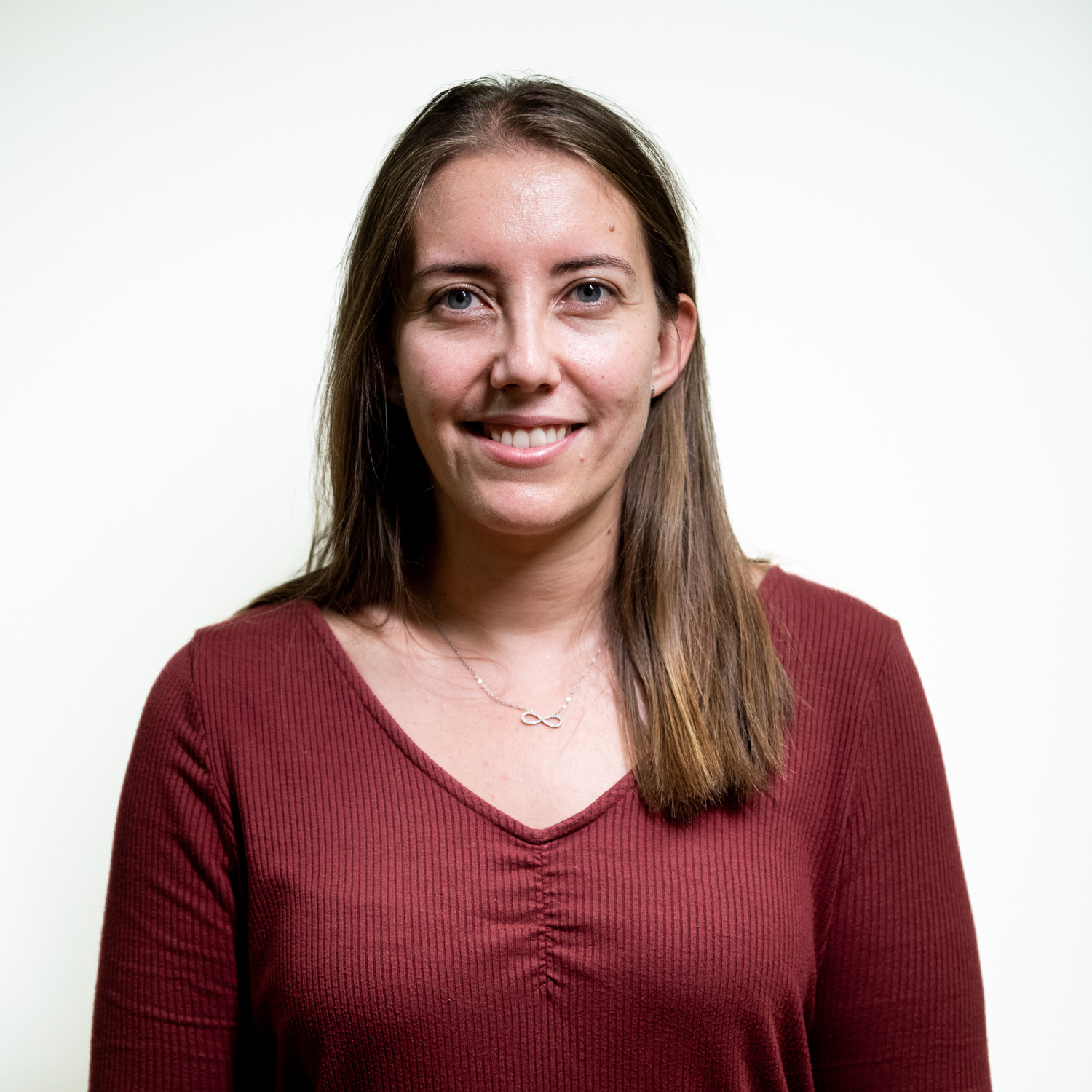
Diana C. Silva
Researcher
Research Group: Advanced Materials
Place: CQE@IST
29 Apr 2025
What is your research?
My research focuses on developing innovative, biocompatible, multi-layered hydrogel dressings tailored for malignant fungating wounds (MFW), which affect advanced cancer patients and are often non-healable. These dressings combine synthetic and natural polymers (like poly vinyl alcohol, chitosan, casein, and starch) with natural-origin therapeutic agents (e.g., Calendula extract, essential oils), aiming to manage pain, exudate, bleeding, odour, and infection —improving patient comfort and care.
Why is it unique?
MFW are mainly managed using dressings intended for other types of chronic wounds, which are incapable of efficiently address the needs of MFW. This project is unique in its holistic, multifunctional approach—blending sustainable materials with drug delivery systems and advanced formulation strategies (e.g., cyclodextrins, biodegradable coatings) to address both physical and psychological burdens of MFW. It is also exploring novel antimicrobial agents and affordable alternatives like Serratia rubidaea-derived prodigiosin.
What are the biggest challenges?
The main challenges lie in ensuring efficient drug release, maintaining material performance post-sterilisation, and balancing efficacy, cost, and biocompatibility for future clinical translation.
Life beyond science...
Beyond science, family is a cornerstone of my well-being, bringing me joy and support regarding the challenges of research. In my spare time, I find great fulfilment in staying active, especially through trekking in nature and love visiting historical sites.
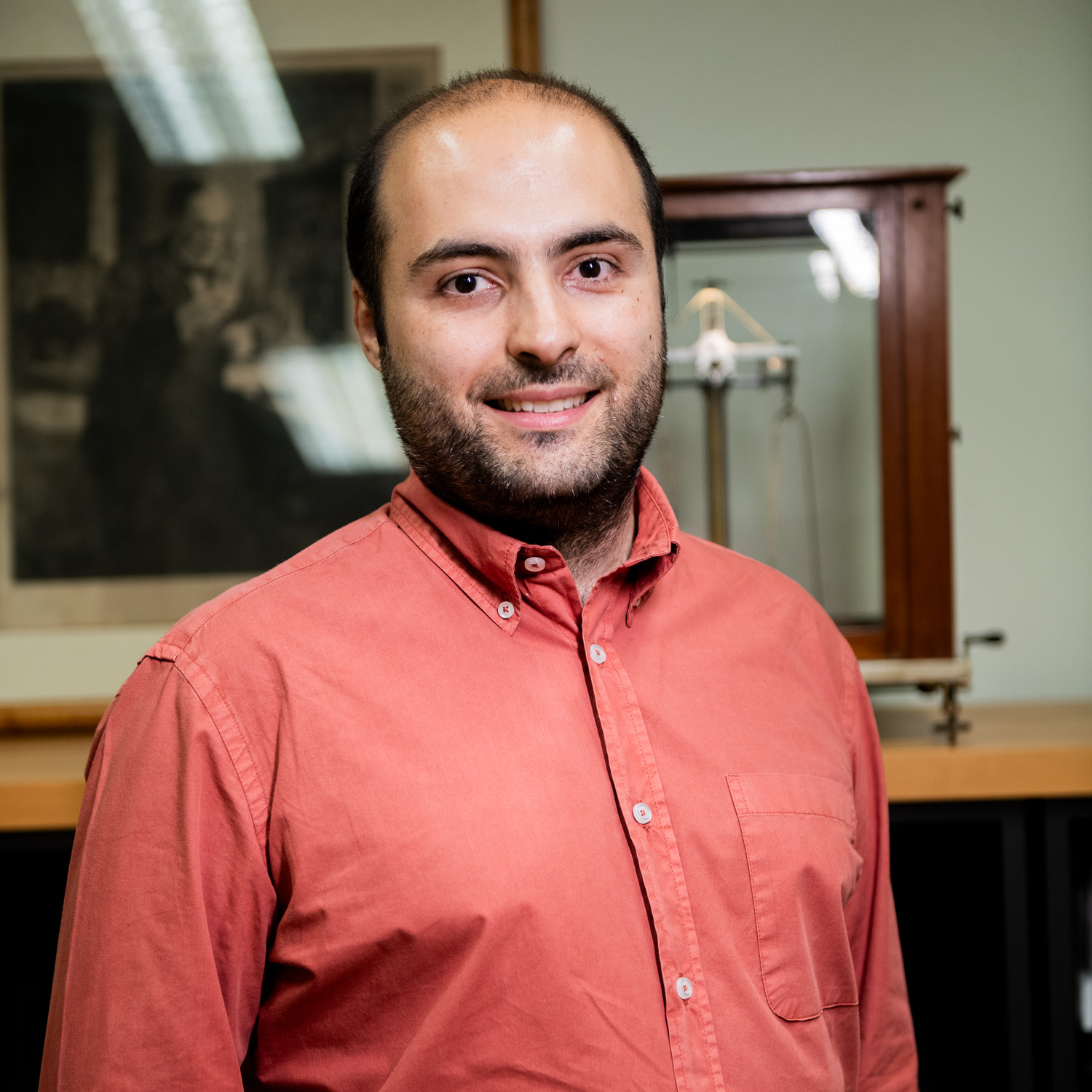
Joaquim Manuel Trigo Marquês
Researcher
Research Group: (Bio)Organic Chemistry & Biochemistry
Place: CQE@FCUL
29 Apr 2025
What is your research?
My research is focused on making use of Membrane Biophysics to tackle antimicrobial resistance. To better understand the organization of fungal plasma membrane and the mechanisms of action of antimicrobial compounds are major aims of my research.
Why is it unique?
Because among other projects I am focused on unravelling the role played by gel-phase sphingolipid-enriched domains present in the plasma membrane of fungi in the response to antifungals. These domains, that up to date have not been identified exist in mammalian plasma membranes under physiological conditions, were discovered in my lab more than a decade ago.
What are the biggest challenges?
One of the most demanding tasks of my research is, perhaps, to study gel-phase sphingolipid-enriched domains in vivo since the available tools to achieve this are scarce. Thus, it is quite challenging to obtain information reporting only these domains.
Life beyond science...
When not doing Science or thinking about Science I am playing with my child and then… I play some more… and when I’m done playing I just need to pay my child some attention. Finally, when she is asleep, I start reading a good book or watch some TV series, but then after a short time I fall asleep because my energy is drained. In my free time I also enjoy traveling when the opportunity arises and play board games.
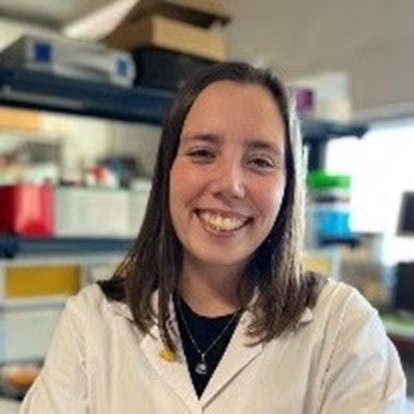
Joana Lourenço
PhD Student
Group: (Bio)Organic Chemistry & Biochemistry
Place: CQE@FCUL
25 Mar 2025
What is your research?
I am working towards developing sustainable methodologies for organic synthesis, focusing on enantioselective C(sp3)–N and C(sp3)–O bonds, by expanding the reactivity of transition metal (TM) complexes based on earth-abundant metal centres (Fe, Ni). My project also entails the development of new TM complexes to access industrially relevant compounds.
Why is it unique?
Given the relevance of heteroatom-containing chiral molecules, there is a need to develop enantioselective C–N and C–O bond formation reactions, which are far less explored than their C–C counterparts. Moreover, there is higher focus on C(sp2)-heteroatom bonds than C(sp3)-heteroatom bonds.
What are the biggest challenges?
Developing sustainable processes remains a challenge in the construction of C-heteroatom bonds by transition metal-catalyzed asymmetric C–H functionalization, as the state-of-art is limited to precious metal catalysts (Pd, Rh, Ru, etc). Furthermore, enantioselective C(sp3)–O bond forming reactions are a major challenge within asymmetric C–H functionalization.
Life beyond science...
I love to travel, bake and run.
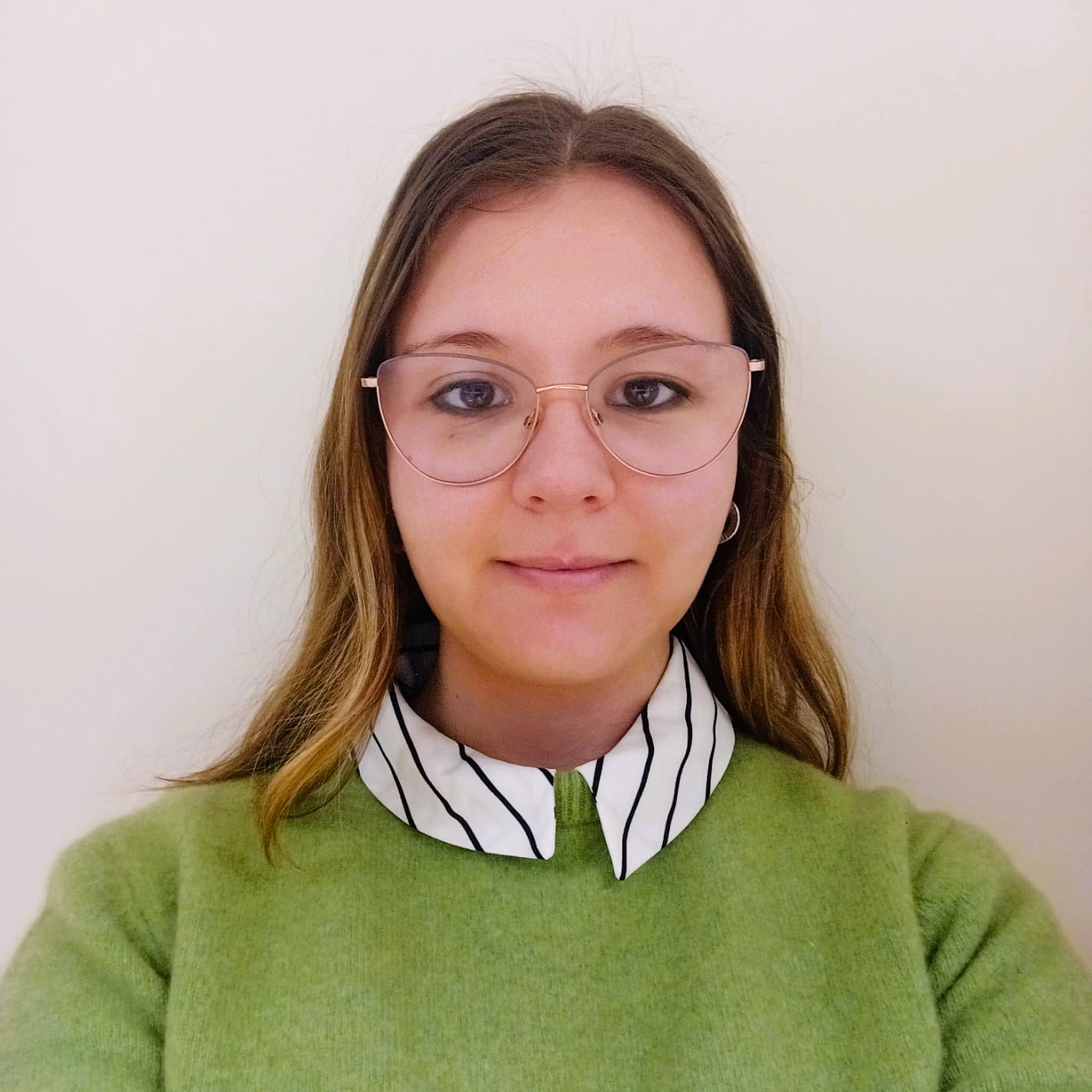
Bruna Filipa Soares
PhD student
Group: Molecular Thermodynamics & Engineering
Place: CQE@IST
25 Mar 2025
What is your research?
My research focuses on developing advanced asymmetric mixed matrix membranes using poly(ionic liquid)s and ionic liquids with particle fillers to enhance gas permeability. These materials are designed for efficient CO₂ separation, contributing to industrial applications.
Why is it unique?
Poly(ionic liquid)s are uniquely advantageous due to their exceptional stability, tunability, and absence of vapor pressure, allowing them to endure high temperatures without losing functionality. By integrating these polymers with carefully selected fillers, the membranes achieve enhanced gas permeability, maximizing separation performance and expanding their application potential. This combination makes them more effective and versatile compared to traditional gas separation.
What are the biggest challenges?
The biggest challenges involve optimizing the polymer-filler interaction for uniformity and stability, the fabrication of tinner membranes, and overcoming the trade-off between permeability and selectivity. Achieving high CO₂ flux without losing selectivity requires meticulous material optimization and design.
Life beyond science...
Beyond science, I dedicate my time to being an active member of a non-profit organization that promotes and organizes events in my hometown. Additionally, I value spending quality time with my family, especially enjoying moments with my one-year-old daughter.
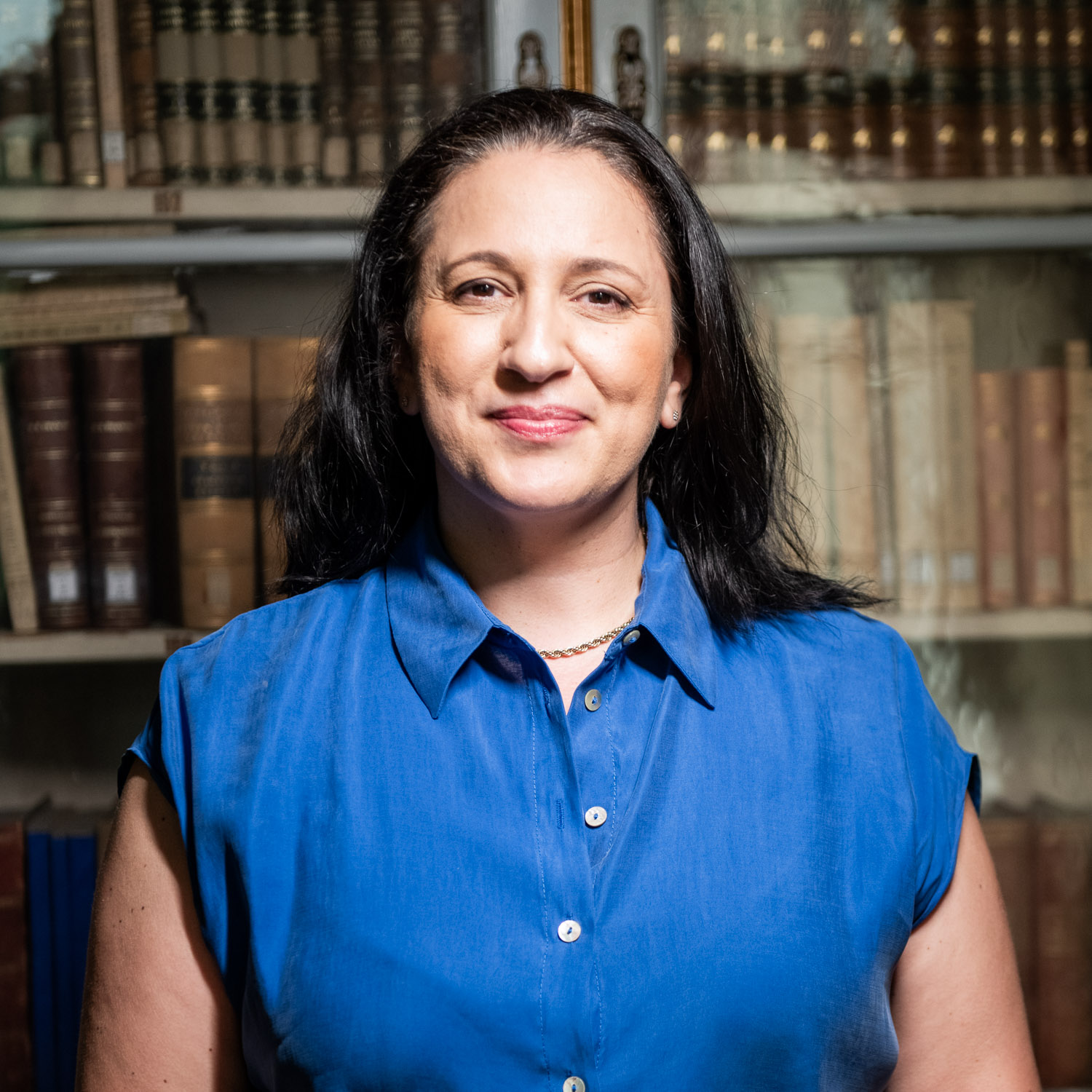
Ana Espada
Science Manager
Science Management & Innovation
Place: CQE@IST, Campus Alameda, Complexo interdisciplinar, room 442
18 Fev 2025
What is your research?
As a Science Manager, I support CQE members identify suitable Horizon Europe funding opportunities based on their career stage. I lead science management initiatives and guide individual and collaborative funding strategies.
Why is it unique?
My approach combines systems engineering and co-creation methodologies to create tools tailored to CQE’s empirical profiles. A transdisciplinary perspective—connecting researchers to funding opportunities and enhancing CQE’s internationalization—makes my work distinctive. Examples include the Science Management SharePoint for guidelines and transparency, as well as Ideation Sessions [2023-24] and the ERC Club [2024-25], fostering collaboration and improving funding readiness. I also offer CQE Office Hours and the Horizon Europe Academy training to help researchers navigate calls and identify suitable funding opportunities while minimizing time investment.
What are the biggest challenges?
Fostering interdisciplinary collaboration (internally and externaly), addressing resistance to international funding, developing strategic international networking (international discussion groups provide inputs to the EC, often reflected in the next year’s calls), and improving science management communication (Monday emails) to engage Horizon Europe applicants.
Life beyond science...
I’m passionate about innovation, entrepreneurship, mentoring startups, and helping SMEs transition to circular business models through design. I also enjoy theatre and music, attending performances monthly to enrich my perspective and inspire my work.
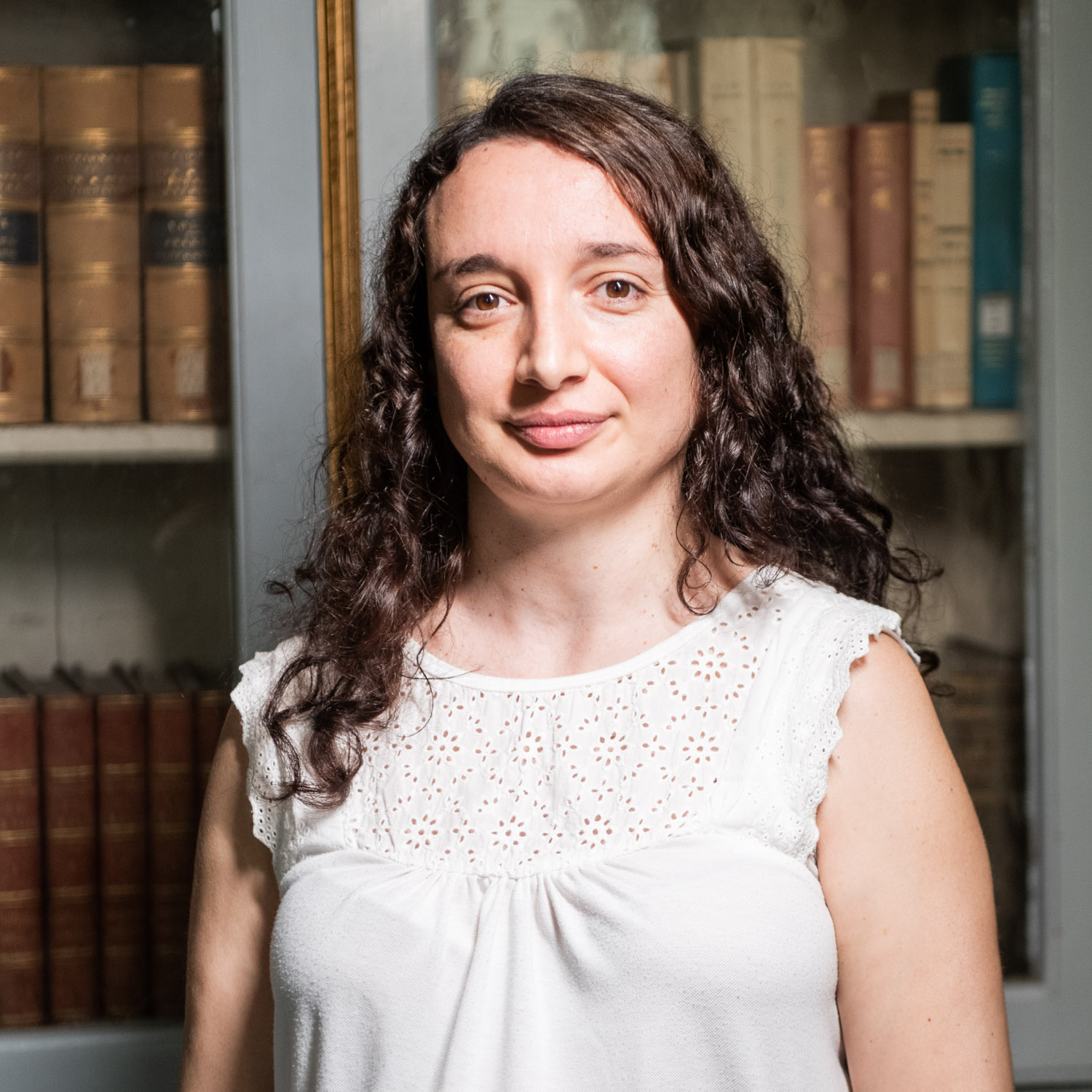
Patrícia Guerreiro
Science Manager
Science Management & Innovation
Place: CQE@Ciências, Campo Grande, C8 Building, Office 8.4.38
18 Fev 2025
What is your research?
I support CQE researchers in identifying and preparing applications for competitive national and international (non-Horizon Europe) funding opportunities that best align with their goals, fostering the impact of their project ideas, and promoting the valorization of their research assets.
Why is it unique?
It combines an interdisciplinary approach, essential for understanding the scientific and technical aspects of the research conducted by CQE researchers, with strategic thinking to support them in navigating grant application processes and facilitating collaborations with partners across different sectors to maximize research impact.
What are the biggest challenges?
The lack of well-defined calendars from various funding entities and the challenge of encouraging researchers to also consider research impact and knowledge valorization.
Life beyond science...
When I am not working, I really enjoy spending time with my family and reading.
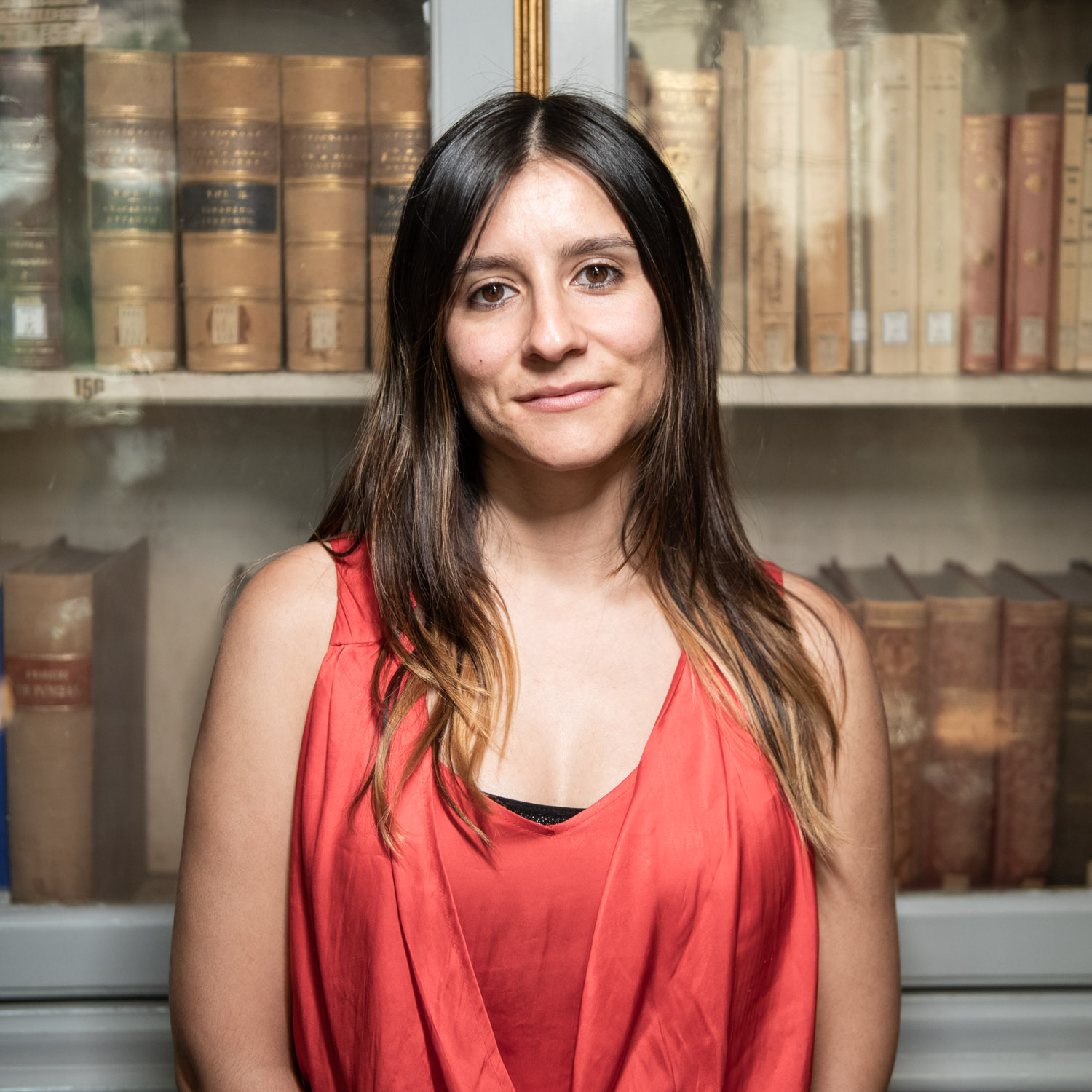
Sara Realista
Researcher
Research Group: Advanced Materials
Place: CQE@FCUL
21 Nov 2024
What is your research?
I have a profound passion for inorganic chemistry and electrochemistry, which I have pursued throughout my career. During my PhD, I deepened my expertise in the redox properties and reactivity of metal complexes and materials. Currently, my research focuses on the electrosynthesis of metal-organic framework (MOF) films. I explore their applications in energy-related processes, such as CO₂ conversion, and their potential integration into electronic devices.
Why is it unique?
My work is unique as it integrates inorganic chemistry, electrochemistry, and materials science to address global challenges, such as environmental sustainability and advancing technology. The core innovation lies in electrochemically designing MOF materials with tailored properties to target specific solutions. By focusing on the electrosynthesis of these materials, I explore their versatile applications in energy-related processes, such as CO₂ conversion, and in electronic devices. This approach not only advances the understanding of redox-active materials but also drives the development of scalable, sustainable technologies for pressing environmental and technological needs.
What are the biggest challenges?
The field faces several significant challenges, including ensuring the stability of MOFs under operational conditions and achieving precise control over their properties during electrosynthesis to maintain uniformity and reproducibility. Enhancing efficiency in target applications, such as CO₂ conversion, requires improvements in selectivity, catalytic activity, and energy efficiency while balancing scalability. Integrating MOF films into functional devices presents difficulties in maintaining compatibility and material performance. Additionally, scaling up synthesis processes cost-effectively and sustainably is a major hurdle. A deeper understanding of redox mechanisms and structure-property relationships is also crucial for designing materials with targeted functionalities, alongside addressing the environmental and lifecycle impacts of these advanced materials.
Life beyond science...
I primarily enjoy spending time outdoors, walking and appreciating nature with my family. I am also a passionate fan of bouldering or tree climbing, although with a one-year-old child full of endless energy, I do not have as much time for it as I would like right now!
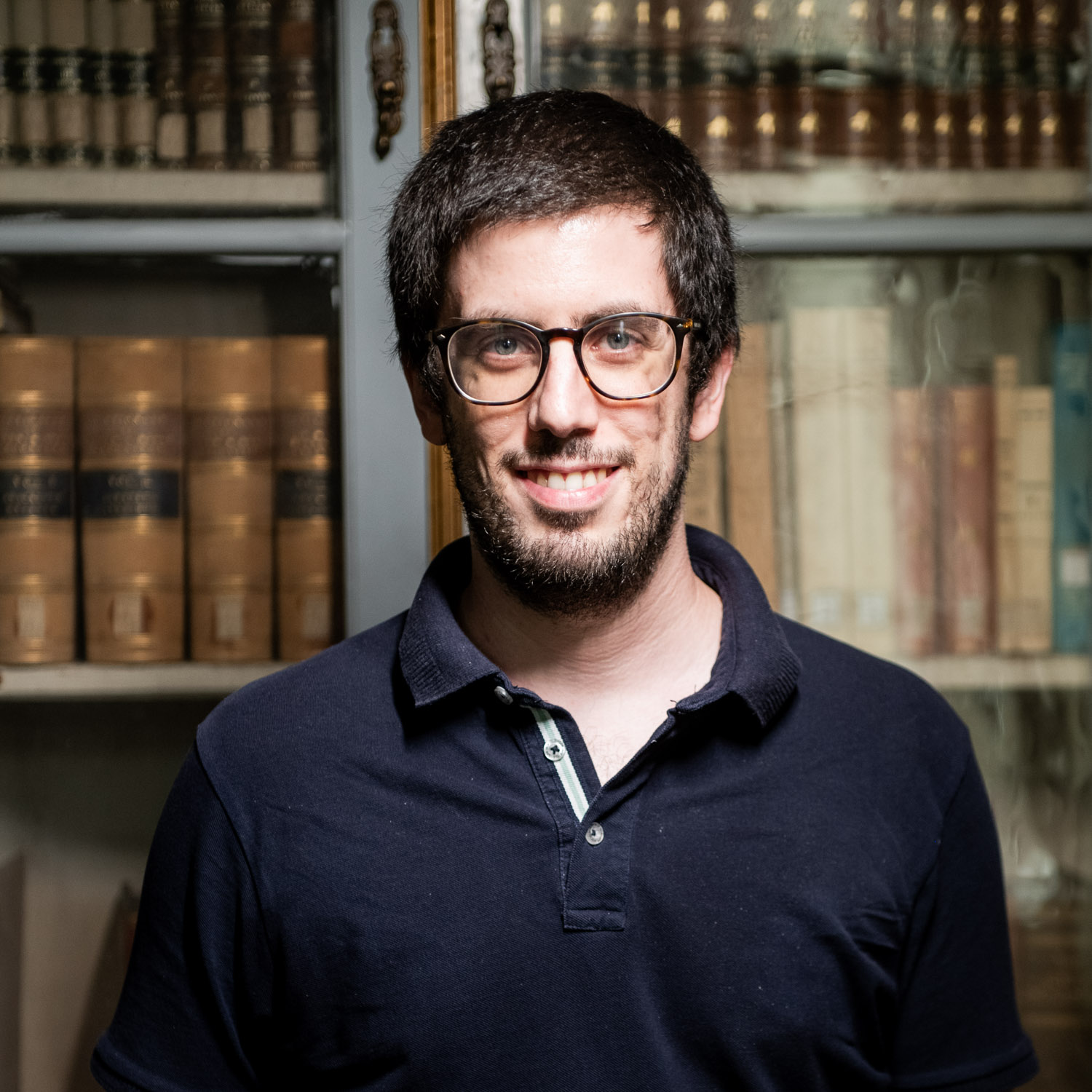
Tiago Cruz
Postdoctoral researcher
Research Group: Inorganic & Bioinorganic Chemistry
Place: CQE@IST
21 Nov 2024
What is your research?
My Research focuses on applied organometallic chemistry. I design and synthesize new ligands and their transition metal complexes using (or not) inert atmosphere techniques and characterize them spectroscopically, structurally and electronically. The new complexes are then applied in the catalytic conversion of carbon dioxide to methanol, while also attempting to understand the underlying reaction mechanisms.
Why is it unique?
The bimetallic complexes I design contain pendent borane functionalities, acting as Lewis acids that interact with the coligands coordinated to the transition metal, via a “push-pull” effect. This unique cooperative effect greatly increases the catalytic activity and selectivity.
What are the biggest challenges?
The biggest challenges my Research faces lie on 1) accurately predicting the structure/catalytic activity relationship via optimal catalyst design, 2) the synthesis of the molecules themselves and 3) undoubtedly disclosing the operating catalytic reaction mechanisms.
Life beyond science...
Beyond Science, I like running, hiking, minigolf, cue sports, cooking and history/geopolitics.
